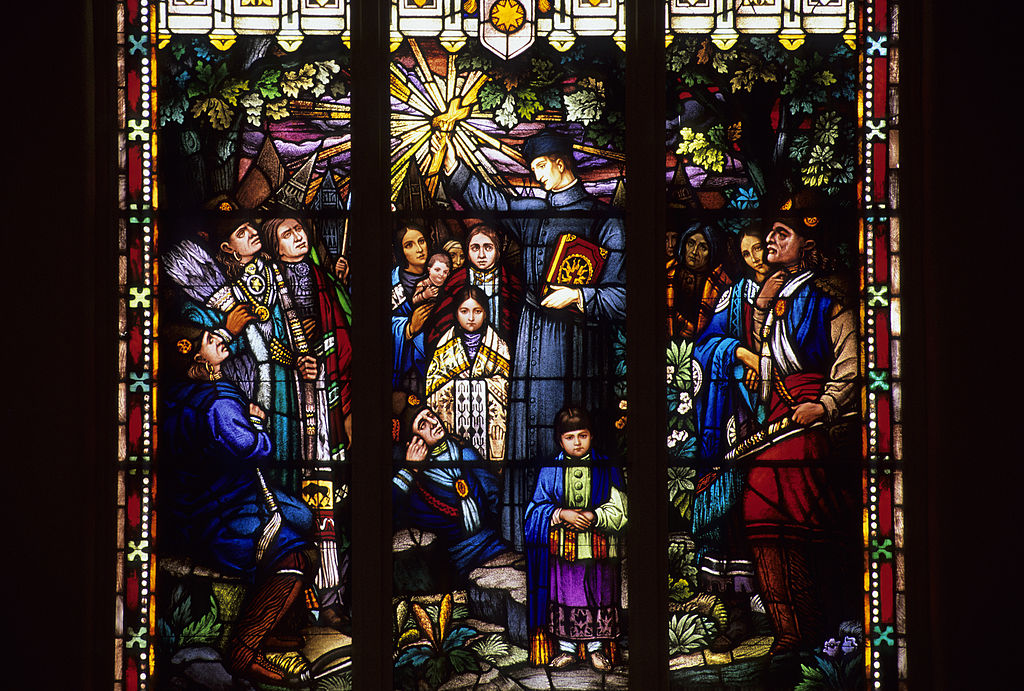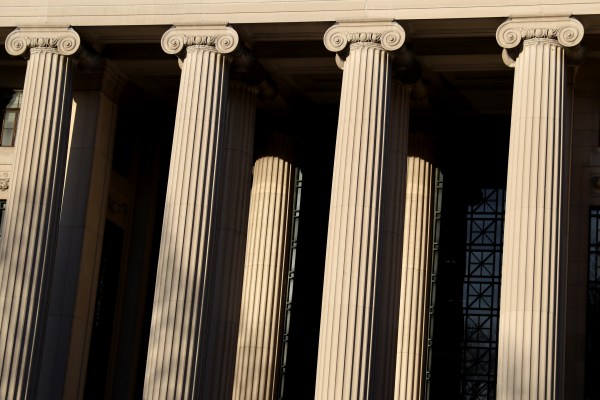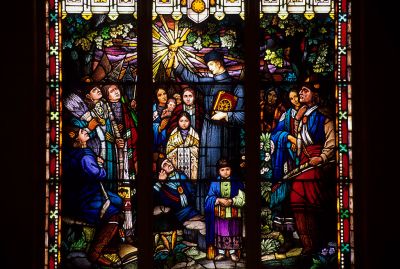The American Civil Liberties Union filed a lawsuit last week on behalf of Oklahoma public school parents, supporters of public education, and Christian advocates for religious freedom to stop the establishment of the nation’s first religious charter school.
St. Isidore of Seville Catholic Virtual School—set to open in 2024—would use public tax dollars to fund a Catholic education for Oklahoma students.
Why is the school opening?
The Oklahoma Statewide Virtual Charter School Board approved the creation of St. Isidore in a 3-2 vote in June after initially rejecting it in April. The online school will teach students “the best of the Catholic intellectual tradition,” according to its website, but is open to accepting prospective students of any faith.
Enrollment in Catholic schools declined by 6.4 percent from the 2019-20 academic year to 2020-21, and many Catholic schools had to close their doors during the pandemic. St. Isidore aims to offer a Catholic education to students in a rural state who might not otherwise have access to one.
Charter schools are tuition-free and funded with taxpayer money, but they are run by independent organizations and, depending on the state, often not subject to several state laws that govern public schools. They are just one method school-choice advocates support for improving education: Vouchers, which provide parents with the opportunity to use taxpayer money for the cost of private school tuition, also give families more freedom to educate their children in the way of their choosing, along with education savings accounts (ESAs)—which can be used for other education expenses in addition to tuition.
Will this go to the Supreme Court?
This lawsuit is likely headed to the Supreme Court, according to Jameson Brewer, an assistant professor at the University of North Georgia. While previous Supreme Court decisions have dealt with the indirect funding of religious schools through vouchers and scholarship programs, St. Isidore will test the constitutionality of direct funding of schools that actively promote a religion, which in the case of public schools has been understood as a violation of the First Amendment.
The Supreme Court has expanded the scope of school choice and funding for religious educational institutions in recent years: A 2017 decision allowed a church daycare to use a public grant program to resurface its playground, and the court ruled in 2020 that a publicly funded scholarship program in Montana could be used at religious schools. And in 2022, the court struck down a Maine law that prohibited its vouchers from being used at religious schools.
What are the legal arguments for and against the school?
Outgoing Oklahoma Attorney General John O’Connor issued an opinion before leaving office in January asserting that the 1999 Oklahoma Charter Schools Act, which states that “a charter school shall be nonsectarian” in its operations, is likely unconstitutional. O’Connor, citing the three previous Supreme Court decisions on the issue, argued that it is unconstitutional to exclude charter schools or other programs that are affiliated with religious institutions from state-created programs “in which private entities are otherwise generally allowed to participate.”
Advocates of the school think its establishment would support religious freedom, arguing that outlawing particular charter schools because they are religious constitutes discrimination. “Charter schools, like private schools participating in parental choice programs, are schools of choice,” wrote Nicole Stelle Garnett, a law professor at the University of Notre Dame. “The only students who will be educated by St. Isidore of Seville Catholic Virtual School are students whose families choose the school for them.”
But current Oklahoma Attorney General Gentner Drummond, a Republican, wrote in a letter to withdraw O’ Connor’s opinion that the question of whether charter schools are state actors—and therefore bound by the constraints of the Establishment Clause—is not settled. Therefore the cases concerning funding for religious private schools in Maine and Montana and the church daycare “have little preferential value as it relates to charter schools.” After the board approved St. Isidore, Drummond said that using tax dollars to fund a religious school “stands the Constitution on its head” and creates a “slippery slope that will result someday in state-funded Satanic schools.”
There are religious leaders on both sides of the debate. Several plaintiffs in the lawsuit are Christians who cite religious liberty and their opposition to “taxpayer-funded discrimination” as reasons for opposing the Catholic charter school. Erika Wright, one of the plaintiffs in the suit, “does not oppose Catholic schools or their teachings,” the suit says. But “having elected to provide a Catholic education to one of her children at her own expense,” she believes that “taxpayers should not be forced to subsidize for others the cost of providing a religious education that is contrary to the taxpayers’ faiths.”
The lawsuit also argues that St. Isidore will be allowed to consider students’ sexual orientation when making enrollment decisions, in accordance with Catholic teaching. (The executive director of the Catholic Conference of Oklahoma said that it would consider admitting gay students on a “case-by-case basis.”)
How does it tie into broader school choice debates?
Many nonreligious advocates of school choice support St. Isidore. Support for school choice has also increased more generally. Last year, Arizona expanded its education savings account program, allowing parents to use taxpayer money to pay for tuition at private schools—including religious schools. (Gov. Katie Hobbs opposes the program, but lacks the support needed to repeal it.)
Meanwhile, Arkansas, Florida, Indiana, Iowa, South Carolina, and Utah have implemented or expanded similar programs this year.
Still, Oklahoma’s Catholic charter school stands out. “This is really the first of its kind,” Brewer says. “This is direct funding of religion from a government as opposed to indirect funding through vouchers.”






Please note that we at The Dispatch hold ourselves, our work, and our commenters to a higher standard than other places on the internet. We welcome comments that foster genuine debate or discussion—including comments critical of us or our work—but responses that include ad hominem attacks on fellow Dispatch members or are intended to stoke fear and anger may be moderated.
With your membership, you only have the ability to comment on The Morning Dispatch articles. Consider upgrading to join the conversation everywhere.